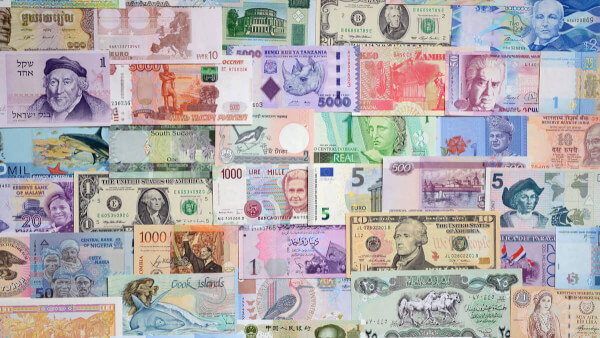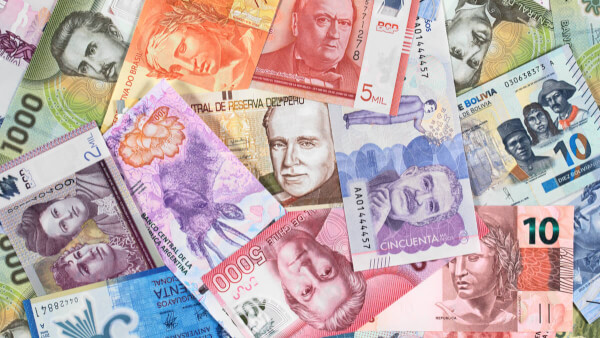Remitbee full guide
Dive into an in-depth exploration of Remitbee, understanding what it is, its service offerings, associated fees, and how it stands out in the online money trans

If you’re a regular visitor to South Africa, or are planning a permanent move, then getting set up with a local bank account will be important to you.
Having a local account means you can arrange other essentials like a mobile phone contract and home internet connection hassle free - and get on with enjoying life like a local.
Make it easier to get settled, by checking out our quick guide to opening a bank account in South Africa.
Some of the major banks in South Africa offer online account opening services for certain account types and for eligible customers. Banks are also well set up to be able to support foreigners moving to South Africa.
You might be able to open a Temporary Resident Account prior to moving to South Africa for example, or a full Non-resident account if you don’t intend to move.
However, bear in mind that some accounts that can be remotely opened are limited in terms of transactions, so you may need to upgrade to a full resident account to get all you need to manage your money from one place.
If you usually bank with an institution that also operates in South Africa, then you may also be able to work with your local US branch to get an account opened before you move.
Check if your home bank has a presence in South Africa, or consider a few of the larger international banks operating in South Africa which we’ll touch on later.
Yes. Many South African banks offer specific accounts tailored to non-residents. A non-resident account can be opened by anyone, but is more restricted than the full access accounts offered to those with valid residence permits.
To open your non-resident account you may need to talk to a banker, although in some cases online account opening is also available.
The exact documents that’ll be accepted by your bank will vary. The biggest factor will be whether you are opening a resident account, or a non-resident one.
| For a resident account you should expect to be asked for the following: |
|---|
|
If you're looking to open a non-resident account the paperwork may be a little different. The bank should guide you through the process, but you can expect to have to prove your identity, overseas address, and income.
South Africa has some good local retail banks, which dominate the sector. These are sophisticated banks, regulated by the local financial services authorities, and often work across the region beyond the borders of South Africa.
Although there are branches and coverage of some international banks, many of these offer limited services, only dealing with larger investors, or commercial organizations. Here are some of the banking choices in South Africa:
Standard Bank¹ offers a wide range of services to non-residents, making it a good choice if you're opening an account before moving there. As one of the biggest banking institutions in Africa, Standard Bank has branches throughout the region.
| Options available include: |
|---|
|
Absa² is the second largest banking group operating in South Africa. They offer regular bank accounts, youth and student accounts, and specialist accounts for those who travel regularly, or require Sharia compliant banking.
| Absa products and services include: |
|---|
|
Nedbank³ has a good range of products and an extensive branch network. Their helpful website explains how to open a non-resident account for those unfamiliar with the process. For non-residents there are savings and currency account products.
| Nedbank services include: |
|---|
|
Capitec Bank⁴ offers phone and Internet banking, including an app. A full range of account services is offered for both residents and non residents.
With a large network of branches, you'll be sure to be close to one if you wish to open an account or manage your money in person.
| The products and services you can access include: |
|---|
|
When you open your new bank account in South Africa, read the terms and conditions carefully. You’ll be able to find a charge sheet on the bank website - or ask for information on fees and charges when you visit your local branch.
One common charge is a fee for withdrawing cash from an ATM operated by a different bank. Costs vary, so choosing a bank with a good network of ATMs, including ones in convenient locations for you, can help you minimize the fees you have to pay.
Make sure you’ve read your account and card conditions carefully so you understand what you're signing up to.
You should be aware of any standard fees that will impact you, like regular charges levied to keep your account open or use a credit or debit card. These account handling fees mount up over time, even if they can initially appear quite small.
In addition, each bank has slightly varying fees for additional transactions and services. This is where your account usage matters. If you plan on using your bank card frequently for international withdrawals, for example, then checking out the fees applied for this will make a difference.
The fees you pay for a non-resident account may be very different to the costs for a resident account, so do make sure you’ve double checked all the correct information for your account type.
If you receive any income from outside South Africa, you might need to move money between accounts which use different currencies. Doing this through your bank will mean paying a fee which can also include a markup on the exchange rate used.
Banking in South Africa shouldn’t be too difficult to navigate - but it won’t be quite the same as you’re used to at home in the US.
That makes it important to compare a few options for banks, look at different account products, and read through the terms, conditions and fees of the account you pick carefully.
Sources:
Sources checked on 10.19.2023
*Please see terms of use and product availability for your region or visit Wise fees and pricing for the most up to date pricing and fee information.
This publication is provided for general information purposes and does not constitute legal, tax or other professional advice from Wise Payments Limited or its subsidiaries and its affiliates, and it is not intended as a substitute for obtaining advice from a financial advisor or any other professional.
We make no representations, warranties or guarantees, whether expressed or implied, that the content in the publication is accurate, complete or up to date.

Dive into an in-depth exploration of Remitbee, understanding what it is, its service offerings, associated fees, and how it stands out in the online money trans

In this article, delve into our MAJORITY review. Explore insights and opinions about its services, features, and alternatives.

Learn about Deriv Currency Accounts, their features, benefits, and how to open one. Discover a new way of participating in forex trading with Deriv.

Learn about foreign currency savings accounts, their benefits, drawbacks, and how to open one. Discover the best banks for these accounts and how to manage fore

Explore the process of opening a foreign bank account, the advantages, the required documentation, and important considerations.

Learn the intricacies of US foreign currency accounts, how to open one, and the advantages they offer. Find out which US banks provide this service and their fe